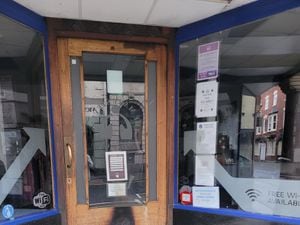My job is to help stop Ebola horror
A reservist soldier from the Black Country is set to fly out to West Africa to help the Army in its fight against the deadly Ebola virus.
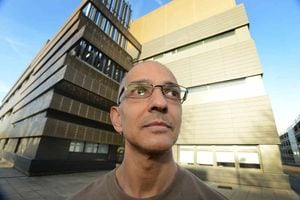
Adrian Smith, who works in the Biomedical Science (BMS) department at Wolverhampton's New Cross Hospital, is currently in the final stages of training for deployment to Sierra Leone and is expecting to fly out with 202 Field Hospital to Kerry Town, subject to passing his validation exam next week.
More than 8,800 people have died of Ebola in West Africa, with 22,092 infected with the disease.
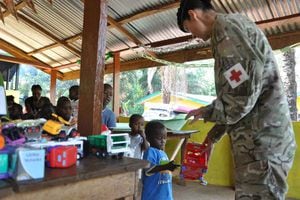
Fragile health services are struggling to cope with the pressure on services, as well as a lack of trained health workers and equipment.
The first group of 150 Army medical staff flew out to Sierra Leone in October last year, where they set up a treatment centre for infected health workers.
Adrian, from Wednesfield, will be investigating patient samples for Ebola patterns as part of a four-strong BMS team.
Adrian said he is determined to do himself and his family proud.
He said: "It is an honour to be called out to Sierra Leone and I'll do all that I can.
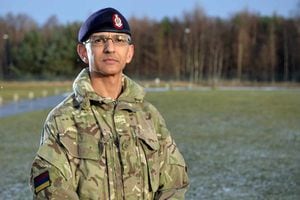
"It is without doubt going to be one of the most challenging experiences of my life. It doesn't come much bigger than this.
"Being in the Army Reserve, I always anticipated a call was going to come and now it has, I am humbled and am ready for the challenge."
Adrian, who has a degree in biomedical science, has been working at New Cross Hospital for more than 13 years.
With previous service in the Royal Artillery in the late 1980s and early 1990s, he joined what was the Territorial Army almost two years ago.
He is currently an Army Reservist with 202 (Midlands) Field Hospital, a reserve unit that has recent experience in providing deployed hospital care in Iraq and Afghanistan.
The Field Hospital operates using tents or existing buildings to provide medical care to soldiers and, where necessary civilians, in the field.
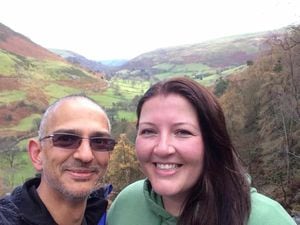
Adrian said: "It's scary but very exciting at the same time.
"Obviously the call comes with some worries about how I'll get on but it is not something you can drop out of when relied upon on.
"This is the challenge I've wanted to be involved with for sometime and the reason that I joined the Army Reserve."
The 46-year-old is expected to be in Sierra Leone until the end of April.
He said: "The support I've had from friends and family has been so overwhelming.
"I've even had my work colleagues give me goodie bags in preparation for what is ahead.
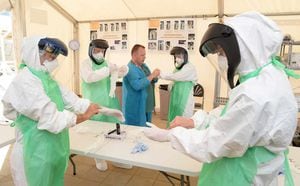
"I'm going to miss my family and my girlfriend, Joanne, but have told them I'll be on the phone to them as much as I can.
"I can understand their worry but they know it is something I've wanted to do for some time.
"I've been with Joanne for about a year now and she has been a rock for me. I'm going to miss her so much."
Adrian said: "I think the biggest challenge will be the emotional side of things.
"The television images are hard to cope with, so seeing it for real will be on another scale. It's going to be hard to hold back the tears."
Adrian said it is vital for everyone to come together to fight the spread of the disease.
"It is a huge tragedy. It is so sad to see so many people lose their lives to something which is beyond anybody's control," he added. "Ebola has spread rampantly especially in West Africa.
"It is unbelievably scary how fast the outbreak has developed.
"The images on television have been very distressing to see. At times likes this it is all hands to the pump and it is important everyone comes together to help out in whatever way they can."
The Army currently has 700 personnel based in Sierra Leone, with 800 having been there at the height of the crisis. These include logisticians and medics.
It has also helped establish six Ebola treatment centres across the country – with the base in Kerry Town, close to the capital Freetown, the first one built.
It now operates a 20-bed unit, specifically for health workers alongside the main treatment unit there.
The Army also established an Ebola treatment academy,which has trained more than 4,000 health workers from Sierra Leone, in areas such as how best to prevent infection.
Royal Auxiliary ship, RFA Argus, was sent out to Sierra Leone by the Ministry of Defence last year to provide logistical support throughout the crisis.
For more information on Ebola and to donate funds to the relief effort, visit www.unicef.org.uk

